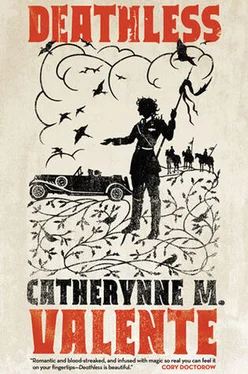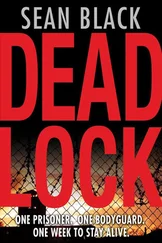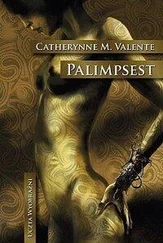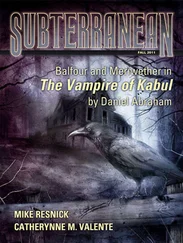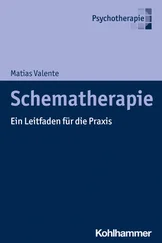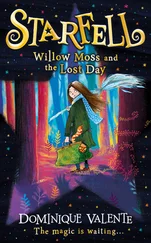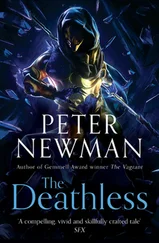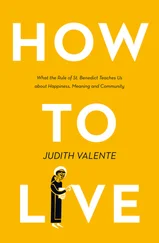“I did not want to, Masha. I had nothing else to give the bird. But I gave him the rifle. He turned up his red throat to the sky and opened his beak so wide! He choked it down until the butt disappeared into his mouth. Then he flew away.
“I sat in the dark house without you, without Kseniya Yefremovna, without little Sofiya babbling about fishes and balloons. I cried so hard that day I thought my spine would crack. And then Zvonok was sitting beside me, patting my knee. The little domovaya said she’d known you all your life, and that you were wicked and had left her, too, but also that you would come back, probably. Wicked creatures never stay away for long, she said. And we began going up onto the roof, taking our posts there to watch the German line and report any movement. We did our best, even though it is colder on the roof than anywhere I have ever been.
“And once, when our watch was done, the domovaya came to me, and she had grown big, and grown long black hair, and she said, What is the point of suffering more than you must? And she kissed me … and I don’t want to talk about that now; don’t ask me. You left me; she stayed. But the next day, I sat on the roof, squinting out at the edge of the city, and a rook flew up onto the gutters, just as fat and black as a rain cloud.
“‘The dress has lost its color,’ he squawked. ‘There is a pain growing in Marya Morevna.’
“And he coughed, and retched, and the dress came up out of his mouth, colorless, not even grey, a dress like spittle. He spat it out onto the roof and leapt back into the snowy air.
“And you can guess it, Masha, of course you can. The next day it was the plover, so brown, so like bread I could have eaten him, and I would never be sorry.
“‘The brush has tarnished,’ he squawked. ‘There is a grief growing in Marya Morevna.’
“And he coughed, and retched, and the brush came up out of his mouth, black with tarnish, not even a little silver showing. He spat it out onto the roof and leapt back into the snowy air.
“Of course you know what I will say next, Marousha. You know this is a story, and you know how stories transpire. The shrike came last, so red, so red. I could hear music playing, somewhere far-off, violins and oboes—but that’s mad, who would play their violin in Leningrad? Why would anyone bother?
“‘The rifle fired itself, and killed a passing owl,’ the shrike squawked. ‘There is a death growing in Marya Morevna.’
“And he coughed, and he retched, and worse, for a rifle falling out of a bird’s mouth is an ugly thing. It clattered onto the roof, but I caught it before it tumbled off. The shrike looked at me with such pity. And he leapt back into the air, snow already on his wings.
“And then you came. You are here. My Marya, all whole and alive and come back for me. That was my whole soul gone out into the telling of all that has passed. But I have your dress and your brush and your rifle, just where you left them, in the closet, in the dresser, under the bed. Where is your pain, Marya Morevna? Where is your grief? Where is your death?”
Marya held him close to her and wrapped him in her hair to keep him warm. And she told him all she could think to tell, of Yaichka, and her hunting of the firebird, and how she had given birth to a child called death, and the radiant bird who had held her, just as she held Ivan Nikolayevich now. “I do wish you had not kept the brush,” she sighed.
“Birds are such trouble,” Ivan said, and for a moment he seemed to want to speak again. But he only coughed, and shivered. Tears spilled out of Marya’s eyes and splashed onto his cheeks.
“If this were really a story, Ivanushka, I could heal you with the Water of Life, and you would stand up and dance with me, and then we would find a table set with all sorts of food and the city would wake up from an endless sleep, and what shouting and singing we would hear, coming up from the streets like steam!”
“Tscha!” hacked Ivan, his cough catching in his throat and unspooling into threads of spittle and phlegm. “Life is not like that.”
“Don’t worry,” Marya whispered, kissing his forehead. “My old bones will follow yours soon enough.”
“Wife, you could sow wheat in the rock of Dzerzhinskaya Street, wait for it to grow, reap it, thresh it, grind it into flour, bake it into bread, and eat the bread and share it round, and even then, you could not catch me.”
And then Ivan died in her arms, his last breath spiraling up to the ceiling like cigarette smoke.
* * *
Marya Morevna put on her colorless dress and dragged her rifle out from under her marriage bed. To two husbands I brought death with a woman’s face, she thought, and stumbled out onto the slush-bound, ice-packed length of Dzerzhinskaya Street. A pack of men in furred coats and hats ran by, their boots stamping shapes in the snow like ellipses. Marya stared at their tracks mutely, her tears chafed into freezing.
“Hey, old woman!” cried one of the men, his own black rifle cocked over his shoulder. “Can you shoot?”
Marya stirred and met his eye. He gestured at the beautiful bone rifle in her hands. “Well?” he demanded.
“Yes,” she said finally, and her breath broke into pieces, carried off by the wind.
PART 6
Someone Ought to Be
A voice came. It called consolingly:
“Come here,
Leave your deaf and sinful country.
Leave Russia forever.
The blood from your hands I will wash
The black shame from your heart I will release
I will soothe the pain of defeats and insults
With the balm of a new name.”
But calmly, with cool blood,
I clenched my ears with my fist …
—ANNA AKHMATOVA
29
Every One Written on Your Belly
The major-general watched Tkachuk, the crippled boy, run across the shorn wheat of Mikhaylovka, tripping, limping away from them. Beside her, the staff sergeant sighed.
“You always let them go. It defies the purpose of arresting them to begin with.”
“What do I want with a dead child, Comrade Ushanka?” said Marya Morevna, passing a hand over her eyes. She was so tired these days. Even her blood could not be bothered with redness. It was all too much work.
“I do not serve your personal issues, Morevna. I serve the People, and the People will have crimes against their body answered. You fought at Leningrad. So did I. Why should he be spared?”
“Someone ought to be.” And it will not be me. I have survived, but I have not been spared .
The major-general slid her hand into the pocket of her uniform. She drew out, as casually as a handkerchief, a ball of red yarn. Marya Morevna could not think why she had waited so long to do this. Perhaps it had just hurt too much before. Perhaps she thought by staying she could be called loyal. She could be forgiven.
The major-general set her ball of yarn down on the dusty earth, the cut wheat, the flecks of ash, and pushed it gently. It rocked back and forth, and then rolled swiftly forward, off into the east, threading a path between stunted trees and dried-up vines. The two women folded up their tribunal table into a long black car with neither chicken legs nor an empty driver’s seat, but simply a car, with a petulant engine and a phlegmatic muffler. Marya Morevna shifted the thing into gear, following the yarn as it unspooled toward the dusk.
In this way they traveled across thrice nine kingdoms, the whole of the world. Ushanka insisted they make the stops they had been assigned, no matter how much Marya did not care, did not even want to look at the starving deserters they were supposed to be shooting. Besides, who was she to judge them?
Читать дальше
